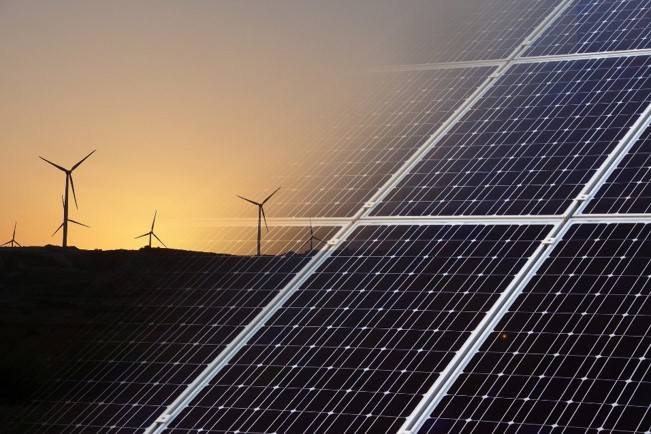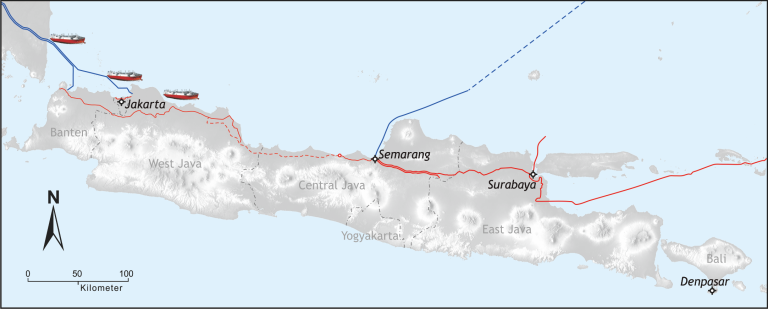As the commitment at COP 26 (26th Commitment of Parties) in a form of the Glasgow Climate Pact, the efforts to prevent a global temperature rise to 1.5 oC have become a matter of concern. Compared to Indonesia’s previous NDC (Nationally Determined Contribution), Indonesia is still committing to reduce emissions by 29% with its effort and could be up to 41% with International support by 20301. With the latest NDC considered an ambitious target, the energy transitions toward net-zero emission serve an important role. One of the enthralling solutions is to develop biomethane as an alternative energy source.
Biomethane—also known as “renewable natural gas”—is the source of methane that is produced from biomass. The two main processes to synthesize biomethane are anaerobic digestion followed by the refining process and gasification of solid biomass followed by methanation2. The refining step in anaerobic digestion is to remove any CO2 and other contaminants, while methanation on gasification is to convert syngas to methane via a hydrogenation reaction. These processes are become necessary to ensure that “renewable natural gas” could penetrate the existing natural gas ecosystem.
As a benchmark, various European countries has been establish biomethane as one of their energy resources. The most established country is Germany. With 232 Units of plant feedstocks, Germany focused on the utilization of biomethane as electricity generation with a total of 10,6 TWh estimated injected gas-grid volume in 2019. Such capacity is dominated by energy crops with 82%. This rapid development was supported by fuel tax exemptions, subsidized feed-in tariffs, and a supervised system of guarantees. However, the country is shifting toward tendering process and as the system has become more established, the biomethane market has received fewer subsidies but has still shown fairly constant growth since 20163.

From Indonesia’s point of view, the understanding natural gas ecosystem will be crucial to keep us from reinventing the wheel. Rather than come up with a new ecosystem that could accommodate biomethane penetration, it is rather wise to find a way for biomethane to adapt to the existing natural gas ecosystem, particularly the midstream and downstream sectors as illustrated in Figure 1.
From the business process development side, several issues have to be solved to ensure the penetration of biomethane in the current ecosystem. One of the issues is the commercial contracts. This becomes more crucial because the contract helps to set up the roles, responsibilities, and relationships amongst related business players in conducting business cooperation in a form of Gas Sales and Purchase Agreement (GSPA). Based on the idea of not reinventing the business ecosystem for biomethane, biomethane will act as a substitute for natural gas, and the dynamics of both buyers and producers need to be satisfied. Buyers and traders want the security of supply and technical compliances from biomethane producers. On the other hand, biomethane producers are likely to seek a long-term contract considering the large investment risk they will bear.
In addition, to kick-start biomethane penetration in Indonesia, an effective policy intervention has to consider various stakeholders’ interests. Such policy will be in the hands of the Ministry of Industry (MoI), Ministry of Energy and Mineral Resources (MoEMR), and Ministry of Finance (MoF). The Ministry of Industry (MoI) in general protects the needs of gas users in Indonesia, this includes small businesses in the commercial sector to large businesses in the industrial sector. On the other hand, MoEMR is generally responsible for regulating energy supplies to end-users. Hence, their policies are more concerned with energy suppliers, especially gas suppliers. MoF will play a crucial part in providing insights into the financial performance in which chains in the industrial sector should be supported and come up with a state budget limitation.
In conclusion, biomethane could be the key to Indonesia’s journey to the energy transition era and the answer to its NDC target. To ensure the biomethane penetration goes in a good manner, several lessons learned from other countries with more established policies and commercial aspects need to be considered in a form of supportive policies that are adjusted to Indonesia’s gas ecosystem. The supportive policy could be in a form of tax exemptions, feed-in tariffs, certificates or quotas, grants, and priority access to the gas grid. In commercial contract aspects, the contract between stakeholders should regulate the security of supply and demand commitment on top of the gas contract conventional point. The last one is the alignment of targets between key-line ministries also plays an important role to ensure the penetration of biomethane as in the priority list of these ministries.
[1] Siaran Pers Kementrian Lingkungan Hidup dan Lingkungan (Nomor: SP. 91/HUMAS/PP/HMS.3/03/2021)
[2] Outlook for biogas and biomethane, IEA Report 2020
[3] European Biomethane Benchmark, Siapartners Report, 2020




